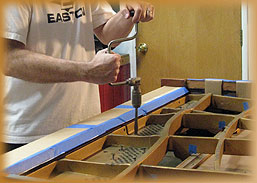 Pianos are made from materials like wood, leather, cloth and metal that wear out over time. The eventual deterioration of a piano is dependent on several factors. Age, environment, usage, and original quality all play a role. Pianos that stay inside peoples homes in more mild climates tend to last longer. While those placed in outdoor conditions or where weather and climate are more extreme will deteriorate more quickly.
Pianos are made from materials like wood, leather, cloth and metal that wear out over time. The eventual deterioration of a piano is dependent on several factors. Age, environment, usage, and original quality all play a role. Pianos that stay inside peoples homes in more mild climates tend to last longer. While those placed in outdoor conditions or where weather and climate are more extreme will deteriorate more quickly.
In Southern California, where I live, pianos tend to last about as long as humans – 75 to 100 years. Though most will not sound good or play well long before that age. Exactly when a piano should be rebuilt or restored can only be determined by careful assessment of all of its mechanical systems.
Piano restoration & rebuilding is a broad subject and no two projects are exactly the same. There are just so many piano construction variations from manufacturer to manufacturer. And changes, modifications, and improvements over the years of product lines are common in the piano industry. Not to mention that piano building is a worldwide endeavor with various cultural influences on design and processes. Because of this, it is common for piano rebuilders to focus on one or just a few brands to develop highly refined skills needed to master their techniques.
In the U.S., by far, the most commonly rebuilt brand of piano is Steinway, followed by Mason & Hamlin. This is for three good reasons. First, Steinway and Mason & Hamlin are American manufacturers and have been around a long time. Many, if not most, of the instruments stay here and are owned by people living in the U.S. Second, They are well made, and well known by Americans because of many decades of strong marketing and branding. The name Steinway is sometimes used in place of the word piano as everyone has heard or seen that brand name on many occasions. Because of this, there exists a strong market for used and restored Steinway and Mason & Hamlin pianos. Prices of well restored instruments are from 50% to 75 % of a new one. Third, from a market value perspective, it makes financial sense to restore a vintage Steinway or Mason & Hamlin piano.
The cost of restoration & rebuilding alone usually prohibits pianos of lower quality from consideration. Unless the piano has other endearing qualities, such as a family heirloom, you are likely to far exceed even its post-restoration value. Therefore, careful consideration of all aspects of a pianos restoration are a must before spending any hard earned dollars.
If you are considering having you piano restored or would like more information, read this excellent article about piano rebuilding/reconditioning from the Piano Technicians Guild